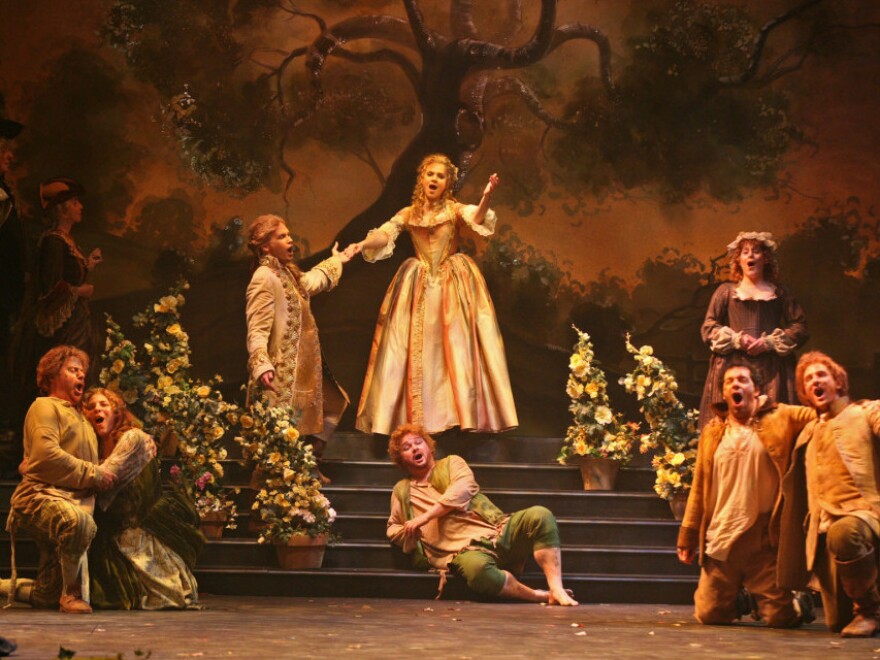In London during the 1720s, one of the hottest tickets in town was for an imported commodity — Italian operas by a popular German composer, George Frideric Handel. Yet while those works were marketed to a sophisticated, well-to-do audience, Handel's music could also be heard in productions aimed at an entirely different crowd.
In January 1728, a new work called The Beggar's Opera took London by storm. It was written by John Gay, but not in the way we normally think of operas being "written" — because Gay wasn't a composer.
The Beggar's Opera was a stage play that also featured songs and dances, and Gay did write the dialogue and lyrics for the show. But its music was borrowed from other sources ranging from pop tunes to Handel's operas. The Beggar's Opera was an immediate hit and can still be heard today, both in recordings and on stage.
What Gay basically invented with that show was something now called "ballad opera" — a genre combining spoken theater and song — and in some ways, it was more sophisticated than the Italian opera seria heard in London's more high-brow theaters.
In opera seria, the dramatic action is conveyed mainly in declamatory recitatives, with songs — arias — serving as a sort of pause in that action, giving the characters a chance to reflect on events and vent their emotions. Many arias were actually interchangeable from opera to opera.
Ballad opera took things a step further, with the songs playing a pivotal role in telling the story. The genre's London popularity only lasted a decade or so, yet English ballad opera went on to influence everything from the singspiel in Germany to comic opera in France to the Broadway musical. And one ballad opera in particular played a key role in the history of American theater.
In 1735 in Charleston, S.C., a ballad opera called Flora went down in recorded history as the first opera of any kind to be produced in North America. The next year, it was performed on a new stage in the same city called the Dock Street Theater.
On World of Opera, host Lisa Simeone presents yet another Charleston production of Flora from the present-day incarnation of the Dock Street Theater, where it was part of the 2010 Spoleto Festival USA.
The version of Flora produced in Charleston was resurrected by American composer Neely Bruce, who took the original song tunes and music from two surviving scores, and wove it all together with music of his own — recreating a world of bawdy comedy, often riotous stage action and truly charming music. The production features Andriana Chuchman in the title role, with Tyler Duncan as Flora's lover Mr. Friendly and Timothy Nolen as her nemesis, Sir Thomas Testy.
This week's double bill from Charleston also includes another rarity from the Spoleto Festival USA, Haydn's one-act marionette opera Philemon and Baucis, with soprano Monica Yunus and tenor Hugo Vera.
See the previous edition of World of Opera or the full archive.
Copyright 2011 WDAV


